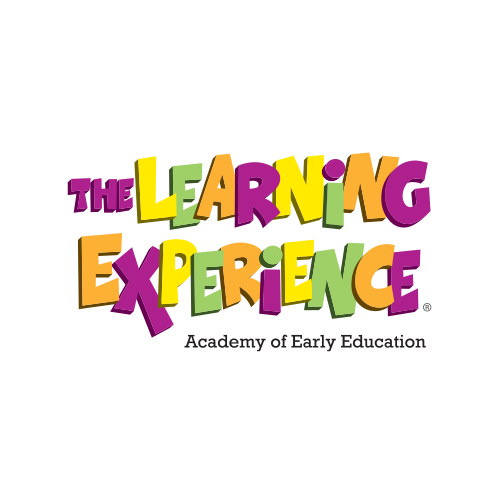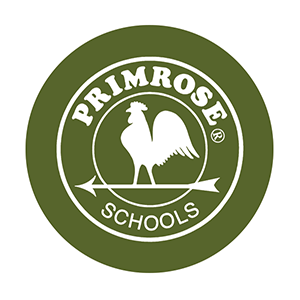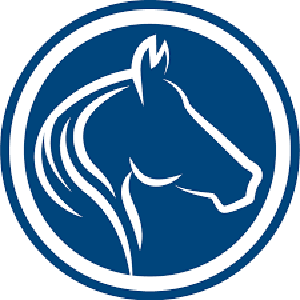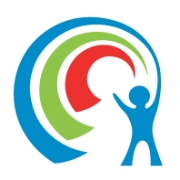The Learning Experience Franchise in 2025: Costs, Fee & FDD
Discover why The Learning Experience is a standout franchise in early childhood education, offering high growth potential, comprehensive support, and a proprietary curriculum. Learn the costs, financial requirements, and earning opportunities in this thriving industry.

Table of Contents:
The Learning Experience (TLE) is a leading name in early childhood education, founded by the Weissman family in 2002. With more than 40 years of experience in developing world-class childcare brands, the Weissmans established TLE to create a nurturing and innovative space where children can learn, play, and grow. Over the past two decades, TLE has built a strong reputation for its commitment to providing high-quality education, driven by a child-centered approach that focuses on learning through exploration. Their mission is to inspire and prepare young minds for future success while promoting happiness and development in a safe environment.
At its core, TLE offers comprehensive childcare and early education programs that cater to infants, toddlers, and preschoolers. What sets them apart is their proprietary curriculum, which blends social, cognitive, and emotional learning with an emphasis on fostering creativity and independence. In addition to early learning programs, TLE provides enrichment opportunities through programs focused on physical fitness, music, art, and philanthropy. Their target market includes busy parents looking for a trusted and stimulating environment where their children can thrive during the critical developmental years.
With more than 300 locations across the United States, TLE has become a major player in the childcare industry. The franchise serves thousands of families daily and continues to expand rapidly, providing access to high-quality early childhood education in diverse communities. This scale, coupled with their consistent performance and brand recognition, places TLE as a dominant force in the industry, giving franchisees the opportunity to enter a well-established and growing market.
For franchisees, TLE offers a robust support system that includes initial and ongoing training, operational assistance, and marketing support to ensure success. Their training programs focus not only on daily operations but also on maintaining their unique curriculum and educational standards. Additionally, TLE provides a structured onboarding process, guidance in site selection, and continual updates to enhance the franchisee’s ability to meet market needs and deliver exceptional service to families.
The Learning Experience Franchise Insights
- The Learning Experience has over 300 locations across the U.S. and serves more than 28,000 children daily, making it one of the largest and most trusted brands in early childhood education.
- The franchise boasts a 98% customer satisfaction rate, which is a testament to its commitment to quality education and child care.
- The proprietary curriculum, known as L.E.A.P.® (Learning Experience Academic Program), ensures children are school-ready by emphasizing language, math, social skills, and even philanthropy, setting TLE apart in the industry.
The Learning Experience Franchise Key indicators
Growth YOY (%)
9%
vs industry 0%
Total U.S. Franchised Units
326
3-Year Failure Rate
3%
vs industry 10%
Sales-to-Investment ratio
0.6:1
How much does it cost to open a The Learning Experience franchise?
Understanding the potential investment size and capital requirements is crucial when considering opening a The Learning Experience franchise. These financial commitments, including initial franchise fees, equipment costs, and ongoing operational expenses, impact the feasibility and profitability of the venture. Thoroughly evaluating these factors ensures that potential franchisees are prepared for the financial responsibilities and can make informed decisions about their ability to sustain and grow the business, ultimately contributing to long-term success.
Min & Max Investment
Opening a The Learning Experience franchise involves several key costs, which are outlined in Item 7 of the Franchise Disclosure Document (FDD). You can see a breakdown of the costs to open a The Learning Experience below from the most recent Item 7 below:
| Type of Expenditure | Minimum Investment | Maximum Investment |
|---|---|---|
| Franchise Fee | $60,000 | $60,000 |
| SDSC Fee (only for Site Development) | $240,000 | $302,500 |
| Lease Security Deposits | $15,000 | $150,000 |
| Insurance Premiums | $3,500 | $18,000 |
| Assignor Security Deposit | $20,000 | $50,000 |
| Organizational Expenses | $1,000 | $2,500 |
| Software Service Fee (6 months) | $3,150 | $3,150 |
| Pre-paid Rent (up to 3 months) | $0 | $150,000 |
| Opening Marketing Efforts | $30,000 | $55,000 |
| Initial Computer Set Up Fee | $2,999 | $2,999 |
| Payments/Security Deposits to Utility Providers | $500 | $5,000 |
| Local and State Licenses and Permits | $400 | $2,000 |
| Travel/Lodging for Staff Training | $2,500 | $15,000 |
| Initial Employee Salaries (6 months) | $100,000 | $175,000 |
| Curriculum | $500 | $3,850 |
| Food/Paper/Expendables | $1,250 | $3,500 |
| Miscellaneous | $0 | $70,000 |
| Additional Funds (6 months) | $200,000 | $400,000 |
| L.E.A.P. Interactive Setup Fee | $5,000 | $8,800 |
| Total Estimated Initial Investment | $685,799 | $1,477,299 |
Item 7 in the Franchise Disclosure Document (FDD) is the “Estimated Initial Investment” section. It outlines the total costs a franchisee can expect to incur when starting a franchise, including the initial franchise fee, equipment, inventory, real estate, and other startup expenses. This section is crucial because it provides potential franchisees with a detailed understanding of the financial commitment required, helping them assess affordability and plan their investment strategy effectively.
Required Capital
To open a franchise like The Learning Experience, the required capital and financial prerequisites can vary depending on location, size, and other factors. While exact figures for liquid assets and net worth might not always be publicly available, here’s a breakdown based on industry standards and estimates for similar childcare franchises:
- Total Initial Investment For The Learning Experience, the total investment ranges between $686,000 and $1,477,000, which typically includes construction, furniture, equipment, and working capital. Assuming that you will finance your franchise investment, you should plan to have 20% of the total investment amount in the form of equity (cash) for the investment.
- Liquid Assets Requirement Franchisees are generally expected to have $150,000 to $400,000 in liquid capital. This helps cover upfront costs like lease deposits, marketing, and initial employee payroll before the center becomes self-sustaining.
- Net Worth Requirement An estimated net worth requirement for opening a TLE franchise would likely be in the range of $600,000 to $1.5 million. This ensures financial stability and the ability to secure financing for large capital expenditures.
How much does a The Learning Experience franchise owner make?
Calculating the salary of a The Learning Experience franchise owner involves analyzing gross sales to determine total revenue, assessing operational efficiency to understand profit margins, and accounting for franchisor fees and additional expenses such as rent, utilities, and payroll. Effective management of these factors can significantly impact the profitability and financial success of a The Learning Experience franchise owner. This comprehensive financial analysis helps estimate net profits, from which the owner’s salary can be derived. A clear understanding of these factors ensures accurate salary projections and financial planning for sustainable business operations.
The Learning Experience Revenue & Gross Sales
The Learning Experience has shown strong recent revenue performance, with the median gross sales for its centers reaching $2,038,148. This impressive figure highlights the franchise’s consistent growth and demand in the childcare industry. Many franchisees see strong financial returns, with the top-performing centers surpassing this median, reflecting the brand’s robust market presence and its appeal to families seeking high-quality early childhood education.
Which key factors impact the average revenue performance of The Learning Experience franchisees?
Several factors likely contribute to the strong median gross sales of The Learning Experience’s U.S. franchisees. First, the growing demand for high-quality early childhood education has positioned TLE as a trusted choice for parents, ensuring steady enrollment across its centers. The franchise’s proprietary curriculum, which blends academic learning with social and emotional development, sets it apart from competitors and attracts families seeking a comprehensive learning environment. Additionally, TLE’s operational support, including marketing strategies and ongoing training, empowers franchisees to effectively manage their centers and drive profitability. The brand’s established reputation and widespread presence further bolster consumer confidence, contributing to sustained financial performance.
The Learning Experience Franchise Operational Costs
When opening a franchise like The Learning Experience, understanding the primary ongoing operational costs is essential for effective financial planning. These costs are directly tied to the day-to-day operations of the childcare center and can significantly impact profitability if not carefully managed. Here are some of the key operational expenses you should be aware of:
- Staff Salaries and Benefits One of the largest ongoing costs, as maintaining a qualified team of teachers and support staff is crucial for running the center efficiently.
- Rent or Lease Payments Depending on location, the cost of leasing the property will be a major factor in your monthly expenses, often accounting for a large portion of your fixed costs.
- Utilities and Maintenance Regular costs such as electricity, water, heating, and cooling, along with building maintenance, need to be factored into your budget.
- Educational Materials and Supplies Continuous investment in age-appropriate learning materials, toys, and classroom supplies is necessary to maintain the high standards of the franchise’s educational programs.
- Insurance Comprehensive insurance covering liability, property, and worker’s compensation is essential for protecting your business from unforeseen incidents.
By accounting for these costs, you’ll be better equipped to manage your center’s finances and maintain profitability.
The Learning Experience Franchise Fees
When considering an investment in The Learning Experience, it’s important to understand the ongoing franchise-related fees that will contribute to the overall financial commitment. These fees cover essential services such as operational support, brand marketing, and other franchise-specific resources provided by the franchisor. Here’s a breakdown of the key fees:
- Royalty Fee You’ll pay a 7% fee on the Center’s Gross Revenue each month. This includes all revenue generated by the center and contributes to the ongoing support and services provided by the franchise, ensuring that you’re continually aligned with the brand’s operational standards.
- Brand Awareness Fund Currently set at 1% of Gross Revenue, this fee goes toward national marketing efforts that help drive brand recognition and increase customer engagement. The franchisor reserves the right to raise this fee to as much as 2.5%, depending on market needs, ensuring consistent brand promotion across all locations.
- Additional Fees There are additional fees for training programs, technology, and other items provided by TLE that may be applied.
Understanding these ongoing costs is essential to maintaining a smooth operation while benefiting from the robust support and brand recognition that TLE offers.
The Learning Experience Franchise Earnings
The earnings of a The Learning Experience franchise owner can vary depending on factors such as location, operational efficiency, and cost management. However, owner-operators who are actively involved in the day-to-day running of their center can expect significant income potential. Based on recent data, the median gross sales for a TLE franchise are $2,038,148, with estimated earnings for owner-operators around $245,000, reflecting an operating profit margin of 12%.
This figure illustrates the potential profitability of the franchise, especially when the owner takes a hands-on approach to management. The combination of TLE’s well-established brand, comprehensive support system, and the franchisee’s active involvement can lead to healthy financial returns. For those committed to closely managing the business, these earnings highlight the potential for long-term success and growth within the childcare industry.
How to Open a The Learning Experience Franchise
Becoming a franchisee for The Learning Experience involves a structured process that ensures you’re well-prepared to launch and run your center successfully. The journey, from the initial inquiry to the start of operations, involves several important steps designed to provide both the franchisor and the franchisee with the necessary insights and tools for long-term success.
- Initial Inquiry You or your franchise specialist submits an initial inquiry basic information about your interest and background. You should also conduct thorough research on the franchise, including seeing all of the information available on the Vetted Biz franchise intelligence platform, including access to the most recent Franchise Disclosure Document (FDD).
- Franchise Application Submit a formal application, providing details about your financial standing, experience, and interest in early childhood education. This helps determine if you meet the qualifications to become a franchisee.
- Discovery Day Attend a Discovery Day event at TLE’s headquarters, where you’ll meet key leadership, explore the business model, and gain in-depth knowledge about the franchise.
- Review & Approval After Discovery Day, the franchisor will evaluate your application, and if approved, you’ll receive a franchise agreement. You’ll review and sign the agreement, officially becoming a TLE franchisee.
- Site Selection & Financing Work with TLE’s real estate team to find a prime location for your center. You’ll also secure financing, either through personal capital or loans, to cover the necessary investment.
- Training Participate in a comprehensive 5-week training program that covers everything from daily operations to marketing, staffing, and child development. This training ensures you’re ready to run your center effectively.
- Construction & Setup With the Site Development Service (SDSC) in place, TLE coordinates the full construction and furnishing of your center. This includes installing equipment for seven classrooms and one infant room, though you are responsible for staff hiring and enrollment.
- Grand Opening Once your center is ready, you’ll plan a grand opening with marketing and promotional support from TLE to attract families and begin enrolling children.
Pros & Cons
Pros
Turnkey Development Option: With the Site Development Service (SDSC), TLE takes care of construction, design, and furnishing for your center, reducing the stress of setting up the business and allowing you to focus on operations.
Proven Business Model: TLE’s over 20 years in the industry and established track record of success offer confidence in the brand’s stability, along with the support of an experienced leadership team.
Strong Profit Potential: The median gross sales of over $2 million and an estimated operating profit margin of 12% for owner-operators show promising financial returns for a well-managed center.
Cons
Labor-Intensive: Childcare centers require hands-on management and staff oversight, which could mean significant time commitment and high employee turnover.
Highly Regulated Industry: Childcare is a heavily regulated sector, meaning you’ll need to comply with strict state and federal guidelines, which may lead to additional operational costs and complexities.
Seasonality and Enrollment Variability: Enrollment rates can fluctuate seasonally, especially during summer and holidays, potentially affecting cash flow if not managed effectively.
Staffing and Training Requirements: High-quality childcare requires well-trained staff, and recruiting and retaining qualified teachers and caregivers can be a significant ongoing challenge.





